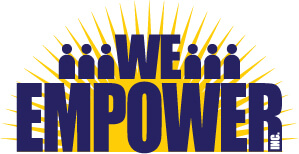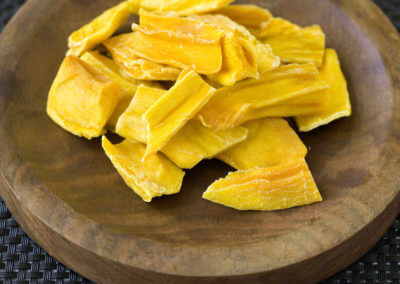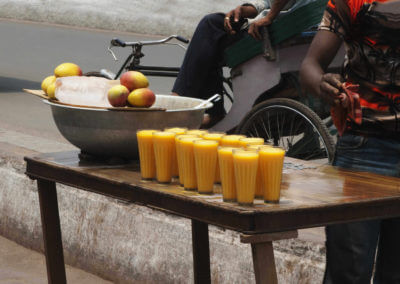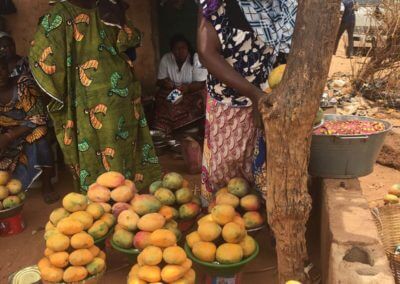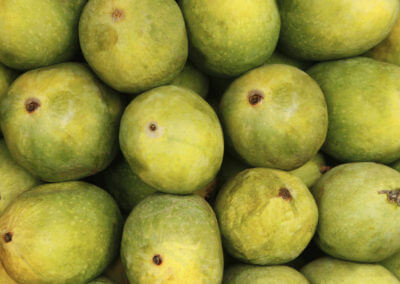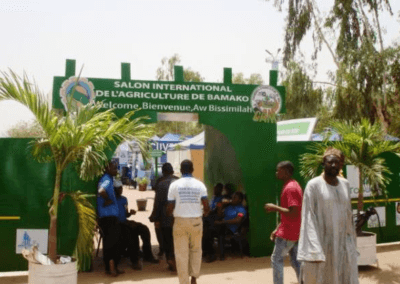Assessing the Role of Women Smallholder Farmers in Mali’s Mango Value Chain
June 2018 – Bamako, Mali
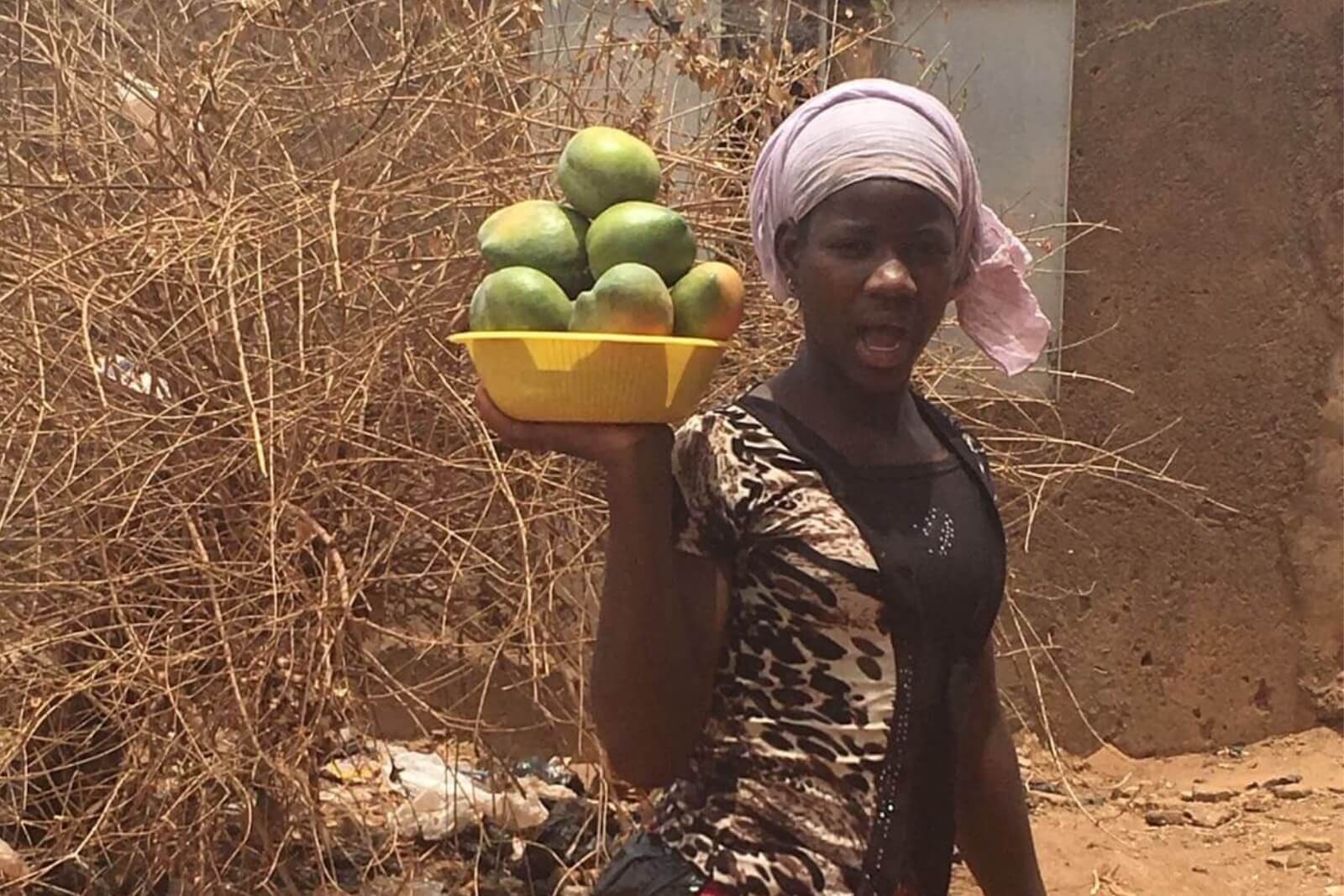
During We-Empower’s recent trip to Mali in May, 2018 – where our group advanced partnerships and performed the inaugural AI training for veterinary students at the Centre National d’Insémination Artificielle Animale du Mali (CNIA) – our team met with various small business owners at the Siagri International Fair of Agriculture in Bamako. Many of these businesses support a substantial population of farmers that operate in the outskirts of Bamako, especially those from the central and northern regions of Mali, Segou and Mopti. One of the most intriguing small businesses we met was a mango company, predominantly owned and operated by women. The company, “Ustako sarl les mangues du Mali”, is a notable success story of women in smallholder agriculture, and a strong indicator of the flourishing mango value chain in Mali.
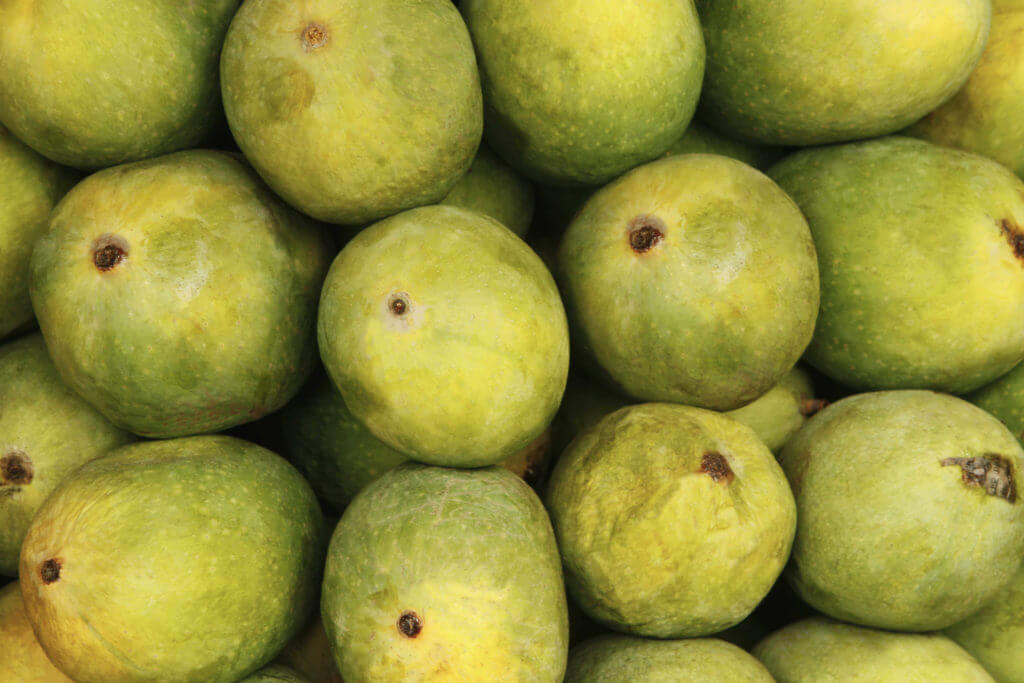
The Malian mango value chain begins with its producers, the majority of which reside in Bamako, as well as the Koulikoro and Sikasso regions of Mali. Mangoes are grown and harvested in these regions until collectors bring them to wholesalers and exporters. At this level, mangoes are shipped to neighboring countries in Africa and countries in Europe via plane or ship. Over twenty mango exporter enterprises reside under two larger export companies, Association Malienne des Exportateurs de Fruits et Légumes (AMEFEL)1 and Association Professionnelle des Exportateurs de Fruits et Légumes (APEFEL). Despite this monopoly, smallholder farmers – a majority of which are female – play a crucial role in the production of mangoes in the country.
According to a report from the World Bank published in February, 2010, Mali has seen its export of mangoes increase six-fold since 1993. This dramatic change is due primarily to the recognition of Mali’s favorable growth climate as well as the “testing and implementation of a multi-modal transportation system for the export of fresh produce”2. Despite this increase, Mali exports only 6% of the mangoes it produces, as the country faces many obstacles to expanding the overseas market for its fruit3.
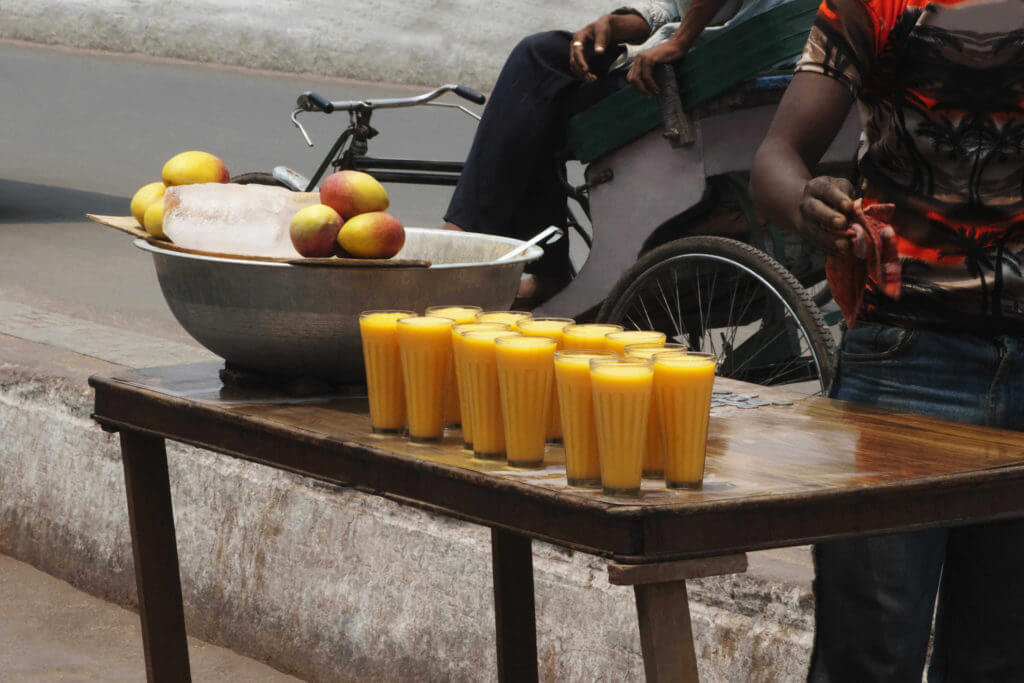
There is tremendous potential for growth in Mali’s mango production sector, but farmers face many storage and preservation constraints. Mangoes are exported to Europe by sea and air to big distribution companies, but the country struggles to meet high demand, as processing mangoes in-country is a challenge to the development of the value chain4. The World Bank Group, as well as many private companies, are currently supporting Malian mango farmers – especially women farmers – to help meet growing domestic and international demand. In fact, the World Bank has provided substantial loans to Mali’s Support to Agro-Industrial Competitiveness Project, which provides necessary training for women in the processing of fruits and vegetables. This support has helped Mali become one of the fastest-growing exporters of mangoes in the world.
Ustako sarl “les mangues du Mali”, the company that we met with at the SIAGRI International Fair of Agriculture, produces a variety of mango products, including dried mango slices, sugar-free mango juice, mango powder, mango pies, and mango bars. Ustako sarl “les mangues du Mali” was established in June 2008, and employs 25 people, the majority of which are women. Ninety five percent (95%) of their mango products are marketed and sold outside of Mali, as they ship their goods to countries throughout Africa and Europe. Despite many challenges, this company has found success in reaching international markets.
With We-Empower’s help, organizations like Ustako sarl “les mangues du Mali” can advance their ideas, limit losses, and deliver their product to larger markets. Our team has substantial expertise in the value chain, as we have conducted thorough surveys to map local value chains through interviews with actors at each level. We-Empower employs engineers who specialize in designing cold storage units to reduce post-harvest losses from 50% to 5%. We also possess the ability to link smallholder farmers to larger, more lucrative markets, both domestic and international. This is especially important for women’s employment, as women comprise the majority of smallholder farmers in Mali and many other countries in Africa. As a result, with We-Empower’s assistance, smallholder farmers are able to increase their job opportunities and income in the sector.
2Yéyandé Sangho, Patrick Labaste, and Christophe Ravry, “Growing Mali’s Mango Exports: Linking Farmers to Markets through Innovations in the Value Chain”, The World Bank (February 2010): 5.
3“To Increase Exports of Mali’s Mangoes, Make Farmers More Productive,” http://www.worldbank.org/en/news/feature/2016/11/28/to-increase-exports-of-malis-mangoes-make-farmers-more-productive, (November 28, 2016).
4Alpha Oumar Kergna, Daouda Dembélé, and Fatunbi A. Oluwole, Innovation Opportunities in Mango production in Mali (Forum for Agricultural Research in Africa (FARA), 2017).
